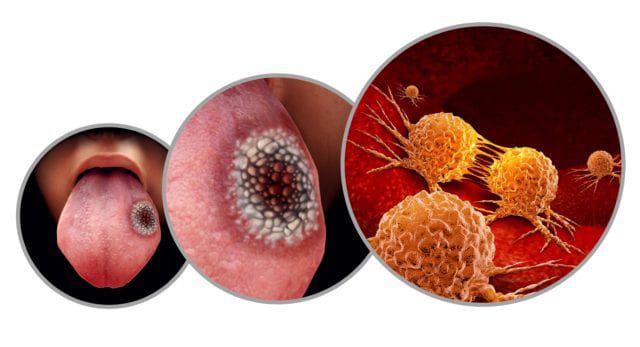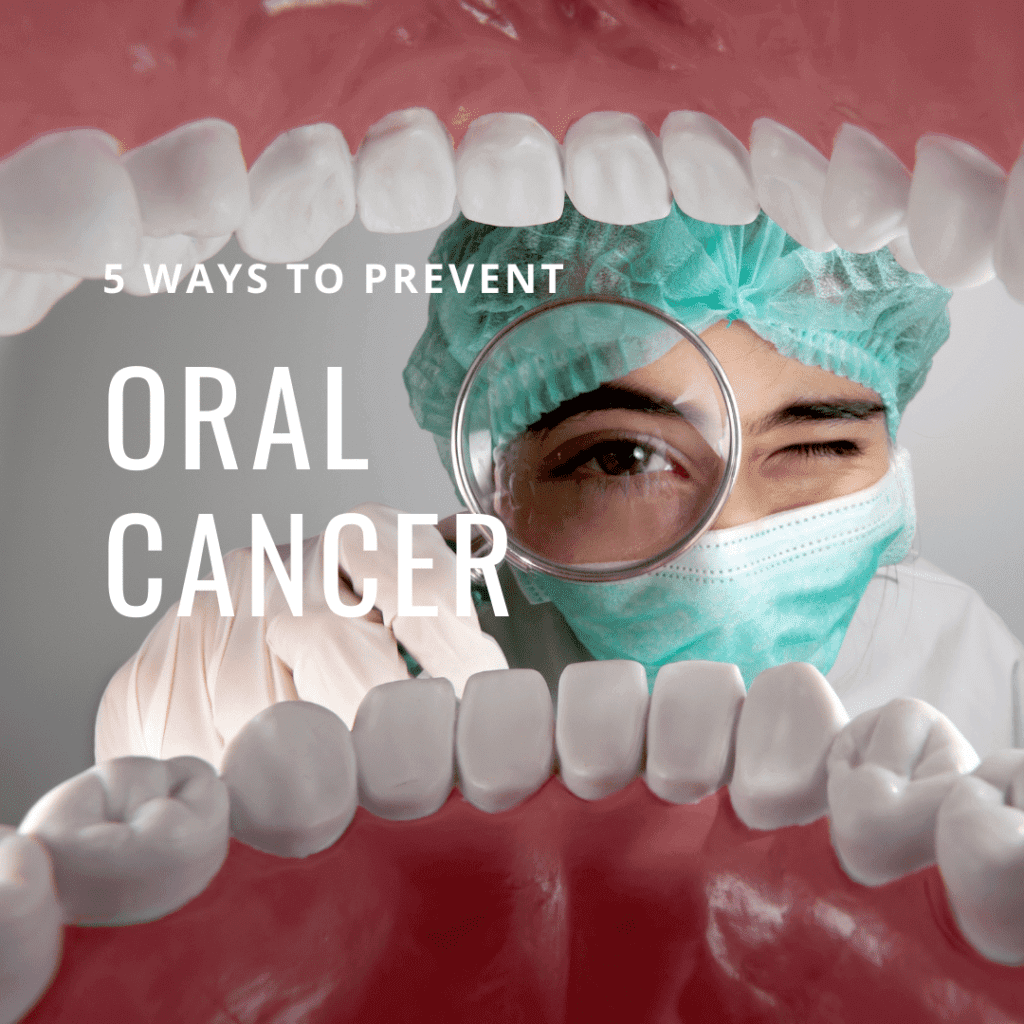In honor of Oral Cancer Awareness Month, we want to talk about how to prevent oral cancer. Oral cancer is a type of cancer that affects the mouth and throat. It can be deadly if not caught early enough and it is estimated that over 50,000 people will be diagnosed with oral cancer this year. That’s why it’s important to know the symptoms and risk factors of oral cancer, and take steps to prevent it from developing. In this blog post, we will discuss all that you need to know about oral cancer prevention!
What is Oral Cancer?
First things first, it is important to know the basics of oral cancer. Oral cancer is a type of cancer that affects the mouth and throat. It can affect the lips, tongue, cheeks, floor of the mouth, hard and soft palates, sinuses, and pharynx (throat). Early detection is key to survival, so it is important to know the symptoms of oral cancer. Symptoms include:

- A sore or irritation that does not go away
- A lump or thickening in the mouth or throat
- Difficulty swallowing
- Changes in voice
- Weight loss
- Unexplained bleeding in the mouth
Risk Factors for Oral Cancer
There are many risk factors associated with oral cancer. Some of these include:
- Tobacco use (cigarettes, cigars, pipe smoking, and smokeless tobacco)
- Excessive alcohol use (more than 1-2 drinks daily)
- Poor nutrition
- Human papillomavirus (HPV) infection
- Exposure to sunlight or radiation therapy to the head and neck area
Preventing Oral Cancer
Now that we know what oral cancer is and some of the risk factors associated with it, let’s discuss ways that we can prevent it.
Avoid tobacco use:
This is the most important thing you can do to prevent oral cancer. If you currently smoke cigarettes, cigars, or use smokeless tobacco, quitting is the best way to reduce your risk. If you don’t currently use tobacco products, don’t start!
Limit alcohol consumption:
Drinking alcohol in moderation can actually have some health benefits. But, drinking excessive amounts of alcohol increases your risk for oral cancer. If you do drink alcohol, limit yourself to no more than one drink per day.
Visit Your Dentist:
Visiting the dentist regularly for check-ups and cleanings is another important way to decrease your risk. Your dentist is specially trained to screen for any signs of oral cancer during regular dental exams. They can identify possible signs of trouble early on so that they can be diagnosed and treated as soon as possible.
Eat a healthy diet:
Eating a diet that is rich in fruits, vegetables, and whole grains can help reduce your risk for oral cancer. A healthy diet is also important for overall good health.
Wear sunscreen:
When you are out in the sun, be sure to wear sunscreen with an SPF of at least 30. This will help protect your lips and other areas of your face from the harmful rays of the sun. You may also be able to use a lip balm with SPF to protect your lips.
In Conclusion
Oral cancer can be a deadly disease, but it is also preventable. By quitting tobacco use, drinking alcohol in moderation, practicing good dental hygiene, eating a healthy diet, and wearing sunscreen, you can help reduce your risk for oral cancer. Early detection is also key to survival, so be sure to see your dentist regularly and report any changes in your mouth or throat to them right away. Thanks for reading and we hope this blog post has helped increase your awareness of oral cancer prevention!



